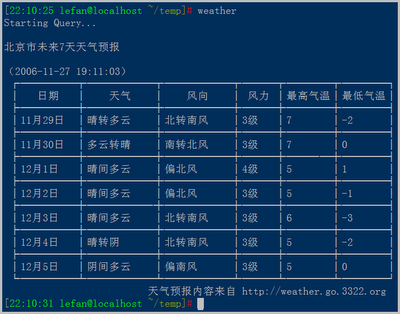Original by Friedrich Hölderlin(in German), translated by Maxine Chernoff and Paul Hoover, from http://www.slope.org/23chernoffhoover.html. See original Destuch at http://gutenberg.spiegel.de/hoelderl/gedichte/brotwein.htm.
Bread and Wine (Brod und Wein)
To Heinse
1
Around us the town is quiet, quiet the street in lamplight,
And with torches flaming, coaches run here and there.
Satisfied with the pleasures of their day, men go home to rest,
And weighing in their pensive heads the profit and loss,
They’re happy to be home; empty now of grapes and flowers
And goods made by hand, the market stands are quiet.
But the music of strings can be heard from distant gardens,
Perhaps one in love is playing, or a lonesome man thinking
Of distant friends and the days of his youth; and the fountains
Always welling new murmur among fragrant beds of flowers.
Softly in the twilight air, the heavy church bells ring.
And the time is called by a watcher of the hours.
Now a breeze rises, and stirs the tips of the grove.
Look! And the moon, the shadow image of our world,
Secretly rises also; and the visionary night approaches,
Replete with stars and indifferent to us entirely;
The astonishing one, a stranger to all things human,
Mournful and brilliant, shines over the mountain tops.
2It’s wonderful to share this exalted one’s favors, and no one
Knows the source of all that flows from her,
So she excites the world and the hopeful souls of men,
Not even a wise man understands what she’s preparing, for this
God the Highest has willed, who loves you so much, therefore
Is clearer to you that the common sense of day.
But there are times when the clearest eye also loves shadows
And tasting sleep for pleasure before sleep demands,
Or a generous man will also look gladly into the night,
Yes, it’s fitting to dedicate songs to her starry diadem,
While she is holy to the dead and those who’ve lost their way,
But by herself she stands, eternally free in spirit,
But to us also, so that, in the moment’s hesitation,
Something at least endures for us in the dark,
She grants us forgetfulness and holy drunkenness,
Grants us the rushing word, sleepless as lovers,
With our wine cups full, and full, audacious lives,
Holy memory, too, keeps us wide-eyed at night.
3And, in vain, we hide our hearts in our breasts, in vain
We hold our courage in check, master and boy,
For who would hinder us, who forbid our joy?
By day and night, divine fire drives us on,
Cracks us open. So come! To gaze at the Open,
To seek what is ours, remote as it may be.
One thing remains; at noon or just before midnight,
A measure always endures, common to all,
Though everyone is apportioned his own,
Each coming and going according to his reach.
Well! Let jubilant madness mock at the scorners
When holy night suddenly seizes the poets.
Then comes to the Isthmus, where the open sea roars
Near Parnassus and snow glistens on Delphic stones,
There in Olympian lands, to the heights of Cithaeron,
Under the pine trees, under grape clusters, from which
Thebes and Ismenos descend, in the land of Cadmus,
From there comes and points back the approaching god.
4Blessed land of the Greeks! Home of all the gods,
So it is true then, what we first heard in youth?
Festive hall whose floor is the sea, whose tables are
Mountains truly built in ancient times for a singular need,
But where are the thrones, the temple, and where the vessels,
Filled with nectar, to delight the gods with songs?
Where, where then, do they shine, the far-reaching proverbs?
Delphi is asleep, and where does the great fate resound?
Where is the quick? Where breaks through the full, all-pervasive joy,
Out of clear skies, thundering to us above our eyes?
Father Aether, one cried, and it flew from tongue to tongue
A thousand fold, for no one could bear such a life alone;
Shared, such wealth gives joy, and when traded with strangers
Turns to exaltation, and its power grows in sleep—
Father! Clear one! The cry resounds as far as it travels, ancient
Signs handed down from elders, creating and striking
Straight down. So the heavenly enter deeply shaking foundations,
So their day travels out from shadows and down to man.
5Unnoticed at first, they come, and the children gravitate
Toward them, the joy too bright, too dazzling,
And the men become afraid, a demigod hardly knows what to say
Their names might be, who come so near with gifts.
But their courage is very great, they fill his heart with their joy,
And he hardly knows what to do with such wealth;
Made and then squandered, the holy quickly becomes unholy,
On which he, with consecrating hand, foolishly, indulgently depended.
The heavenly bear it as long as they can, but when
In fact they arrive, men grow accustomed to joy,
To Day, to the gods stripped bare, and to their faces,
Which once and for all, finally have names.
Their breasts were filled deeply with quiet contentment,
And alone and from the start, every desire was met;
Such is man; when wealth is present and he’s tended with gifts
By no less than a god, he sees and understands nothing.
First he must suffer; but now he names his most loved things,
Now, now, he must instead find words standing up like flowers.
6And now he thinks to honor the holy gods in earnest,
In truth indeed, all must repeat their praise.
Nothing must see the light but what pleases the high ones.
The Upper Air was never made for such idle endeavors.
So to stand proudly in the gods’ presence, nations rise up
And build in glorious order, competing with each other,
Gracious temples and cities; noble and firm, they tower high
Above shores, but where are they? Laurels of the festival,
Where do the famous ones bloom? Thebes is withered,
And Athens; no more do weapons ring out
In Olympia, nor the games’ golden chariots, and no longer
Are Corinthian ships covered in garlands.
Where are they, too, the old holy theaters?
Why is the sacred, holy dance no longer celebrated?
Why, as never before, is the brow of man unmarked by a god?
Or he would come as himself and take a human shape,
And, comforting everyone, bring an end to the heavenly feast?
7But, friend, we’ve come too late. Though the gods are living,
Over our heads, above in a different world,
Endlessly they do their work, and are so gracious to us
They seem to pay little attention whether we live or die,
For a delicate vessel can’t always contain them,
Only at times can men bear the gods’ fullness.
Even after life, we dream of them. But that labyrinth helps,
Like sleep; distress and the night make us strong,
Until the heroes grow large enough in their steel cradles,
And only when our hearts are strong, as before, can we match
The heavenly. Then they come thundering. Meanwhile, I often
Think it’s better to sleep than to be without friends,
Always waiting, and what to say or do in the meantime,
I don’t know, and of what use are poets in such meager times?
But they are, as you say, like the holy priests of the wine god,
Who roam from land to land in the holiness of night.
8Indeed, for a long time, to us it seems forever,
Everyone rose up whose light had blessed us
When the father turned his face to man,
And all over the earth, quite rightly, they began to mourn;
It appeared that at last a genius had come, offering heavenly
Comfort, and he who named the day’s end then disappeared,
Leaving a token that once they were here and once would
Come again; the heavenly chorus left gifts behind,
For, to spiritual joy, the great had become too great
Among men; furthermore, lacking the strength
For God’s joy, they still offer silent thanksgiving.
Bread is the fruit of earth, yet touched by the blessings
Of light, and, from the thundering god, comes the joy of wine.
Thereby, partaking of them, we think of the heavenly,
Who once were here and will return at the moment prepared;
Therefore poets sing earnest songs to the wine god
And never idly compose songs of praise for the ancients.
9Yes, they say rightly, he joins day with night,
Drives the heaven’s stars endlessly up and down,
As glad always as the green bows of the evergreen,
Which he loves, and the wreath made of ivy
Chosen because it lasts and, to the godless below
In their gloom, contains the vanished god’s essence.
The ancient song foretells what God knows of his children.
Look! We are those very same ones; it is Hesperian fruit!
And so quite perfectly it has been fulfilled in man.
Believe since it has been proven! But so much happens,
Nothing succeeds, because we’re heartless, mere shadows
Until our Father Aether is known and heard by all.
Meanwhile, however, the son of the highest, the Syrian,
Comes down through the shadows on wings of flame.
The wise men are happy to see it, in their captive souls
A radiant smile, and the light thaws out their eyes.
The Titans sleep gently and dream in the arms of earth;
Even Cerberus, that envious one, drinks and goes to sleep.
[END]
These poems are from a 220-page manuscript, Selected Poems of Friedrich Holderlin, that will be published by Omnidawn in 2007.


